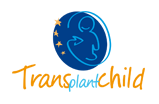Background
Paediatric transplantation (PT), like solid organ transplantation (SOT) or haematopoietic stem cell transplantation (HSCT), is a rare and high-complexity procedure that requires a standardised approach to guarantee equal access and safe patient care. In fact, we may consider PT to be a subspeciality within the field of transplantation. The unique features of PT, including a low number of cases, young age and low weight, immune system immaturity and plasticity, the transition from childhood to adulthood and long-life expectancy, require the transfer of specific knowledge, techniques and innovative medicine in paediatric patients. All of this makes PT a procedure without a common standard or PT care quality regulations. However, in order to maintain the ERN competency and expertise, it is necessary to develop a common education and training strategy that focuses on these topics.
Learning objectives
The main aim of the workshop is addressing training in the area of paediatric transplantation (PT) according to the holistic approach of the network and allows integrate educational activities in all type of transplant and a wide variety of professionals involved in all phases of the transplant. This workshop provides skills to perform a common and transversal approach to all types of PT procedure. This Workshop edition will be focused on the medical and nursing teams involved in the follow-up of paediatric transplanted patients.
Learning objectives:
After attending this educational workshop, participants will be able to:
- Evaluate paediatric transplantation in all its phases, pre-transplantation, transplantation and post-transplantation.
- Identify the most relevant issues to promote graft optimization, tolerance and psychosocial issues involving a multidisciplinary approach from clinical and nursing team.
- Apply the knowledge acquired through clinical cases of transplanted patients.
- Identify critical knowledge in the clinical research practices on paediatric transplantation from nursing and medical professionals.
- Recognise possible gaps in the care of transplanted children and encourage tools in medical care that allow advances in translational research in transplanted patients.
Methodology
- The workshop has been divided into two general sessions and two parallel sessions with current common topics relevant to all professionals involved in the healthcare of paediatric transplanted patients, and which have demonstrated importance in translational research promoted in recent years.
- The sessions are composed of lectures of 15 to 30 mins, with a brief discussion and questions time after each lecture.
- The Lectures were identified as the main topics of interest for the medical professionals and nursing teams involved in the transplant process. The key concepts and the final approach to the presentation will be defined by each of the speakers, always framed in the selected theme.
- Each session has a Chair as moderator of the discussion, question session, and clinical cases.
- Parallel sessions are divided into nursing teams and medical professionals. The first part of the nursing session is composed of 3 Lectures about translational research experiences from the nursing teams. The second part will be dedicated to oral presentations by the participants on treatment adherence.
- The parallel session for medical professionals, like that of the nursing team, will be composed in the first part of Lectures related to current and innovative research topics on paediatric transplantation. Subsequently, there will be a clinical cases session about problems identified in clinical practise that could promote translational research questions.
Target audience
Healthcare professionals and members of multidisciplinary teams integrated into the network (at all levels of care and geographic areas) providing health and social services, as well as potential partners and affiliated members of the network.
Health professionals involved or interested in organ donation and transplantation, particularly clinicians and nurses from any transplant programme. Professionals involved in patient care through paediatric transplant centres that do not have the necessary expertise.
Open to all health professionals whether they belong to ERN TransplantChild or not.
Expected outcomes
At the end of the workshop, participants will be able to:
- Understand the main clinical problems common to all type of organ in paediatric transplantation and how to make an approach to complex patients
- Integrate the current approach of translational research in relevant issues of paediatric transplantations and promote new research and collaborations from multidisciplinary teams in the research field.
- To integrate clinical, surgical and psychosocial care in the translational research related to paediatric transplantation to promote the improvement of clinical results and impact in the quality of life of patients and their families.
Accreditations
Continuing Education in Medicine of 6 learning hours has been requested to this workshop (UEMS EACCME® for CME accreditation). A certificate of attendance will be handed to the participants who attended the entire workshop.
ICNEC Accreditation for nursing teams has been requested.
